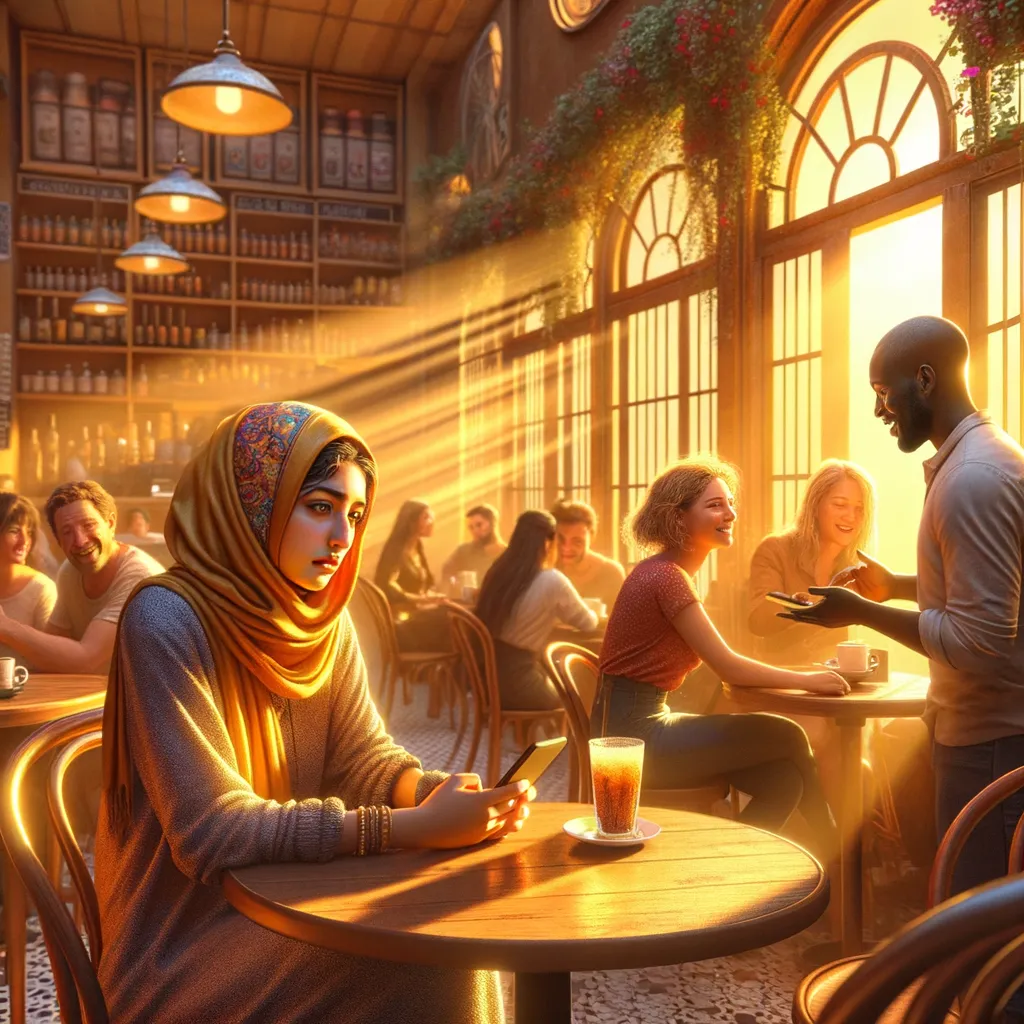A Hidden Treasure: Rediscovering Books in a Digital Age
In a quaint, timeworn bookstore, a wanderer is enveloped by the comforting scent of aged paper and leather, drawn into a labyrinth of stories waiting to be unearthed. As the outside world buzzes with digital distractions, a slender volume titled “The Last Librarian” emerges, revealing a future where libraries are but distant memories and knowledge is reduced to mere data points. This ironic discovery sparks a profound realization about the fragility of culture and the importance of preserving the essence of stories that shape humanity. Amidst the whispers of the past, a flicker of hope ignites, suggesting that the tactile joys of reading might evolve into cherished treasures for a select few. Ultimately, the journey through the bookstore becomes a reflection on the deeper connections forged through stories, leaving lingering questions about how future generations will interpret the legacy of the written word.
In the memory of December 15, 2016, I found myself wandering through a quaint, timeworn bookstore, nestled between the bustling streets of a city that seemed to pulse with digital energy. The scent of aged paper and leather bindings enveloped me like a comforting embrace, inviting me to lose myself among the labyrinthine shelves that held stories waiting to be discovered. Each book, with its dog-eared pages and faded covers, whispered secrets of lives lived, dreams realized, and adventures embarked upon. It was in this refuge of words that I began to ponder the inevitable fading of such tangible treasures.
The world outside was a cacophony of notifications, a constant stream of information that flowed like a river, unceasing and relentless. I imagined future generations, cocooned in the glow of their screens, their fingers dancing over glass rather than paper, perhaps never knowing the tactile joy of turning a page or the thrill of stumbling upon a forgotten volume. The thought struck me like a bolt of lightning—would they even understand the allure of a physical book? Would they view them as relics, akin to ancient scrolls or dusty phonographs, charming yet obsolete?
As I drifted deeper into the aisles, I stumbled upon a slender volume titled “The Last Librarian.” Its spine cracked slightly as I pulled it from the shelf, and I couldn’t help but smile at the irony of its title. A story about a future where libraries had become mere memories, where knowledge was distilled into data points, devoid of context or nuance. The protagonist, a custodian of forgotten tales, journeyed through an increasingly digital landscape, seeking to preserve the essence of stories that had shaped humanity. It felt as if the universe had conspired to remind me of the delicate threads connecting us to our past.
I marveled at the irony of how this narrative, set in a future where books were scarce, mirrored the very moment I was living. It hinted at the fragility of culture and the consequences of allowing our stories to fade into the ether. The bookstore, with its creaking wooden floors and soft lighting, stood as a bastion against this encroaching oblivion, a sanctuary where the past was cherished and celebrated. Yet, I couldn’t shake the feeling that this sanctuary was under siege.
With each passing year, the allure of screens and convenience seemed to cast a shadow over the written word. E-books, audiobooks, and streaming services thrived, offering instant gratification that books, with their slow-burning charm, could not compete with. I envisioned children of the future, their eyes glazed over, swiping through endless options, missing the magic of a story unfolding in their hands. Would they ever feel the rush of excitement that came from discovering a book tucked away in a dusty corner, or the joy of sharing a beloved tale with a friend over coffee?
Yet, as I stood there, surrounded by the whispers of the past, I felt a flicker of hope. Perhaps the allure of the printed word would endure, not merely as a commodity but as a relic of human experience. The tactile sensation of paper, the art of cover design, and the very act of reading could become treasures cherished by a select few, a badge of honor in an increasingly homogenized world. The eccentricity of those who sought out the physical book might be celebrated, a counterculture rising against the tide of digital uniformity.
In that moment, I understood that the disappearance of physical books would not merely be a loss of ink on paper but a profound shift in how we connect with one another and our shared histories. The stories contained within those pages are vessels of empathy, binding us across time and space, reminding us of our humanity. They are windows into the souls of others, allowing us to experience lives we could never live and emotions we might never feel.
As I made my way to the checkout, clutching my newfound treasure, I couldn’t help but wonder how future generations would interpret our current world. Would they romanticize our relationship with books, painting us as nostalgic dreamers yearning for a simpler time? Or would they view us as relics, clinging to a fading past while the future surged ahead, unencumbered by the weight of history? In the end, I realized that the greatest discovery was not merely the books themselves but the questions they left behind, inviting us to reflect on our own existence.
In an age where the ephemeral often eclipses the eternal, what stories will we choose to carry forward, and how will they shape the world yet to come?
In the quiet embrace of a timeworn bookstore, the fragility of culture reveals itself, reminding us that stories, like whispers of the past, hold the power to connect humanity across the ages.



